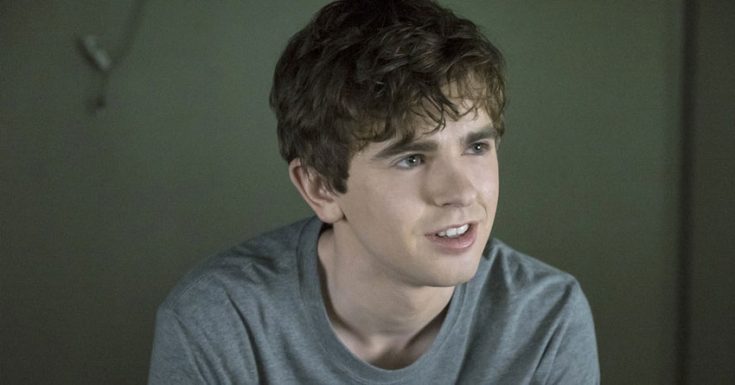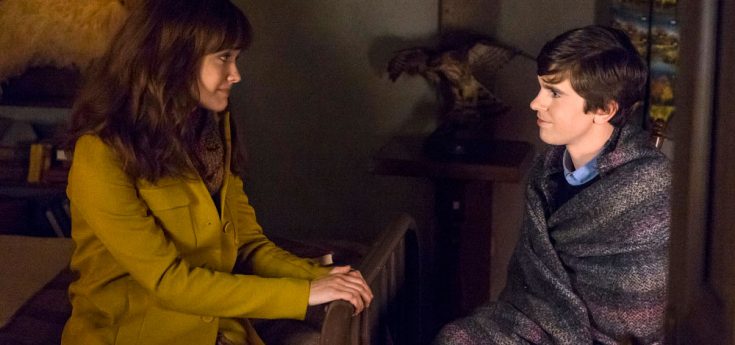The performance of Freddie Highmore as Norman Bates in the Psycho prequel series Bates Motel is remarkably subtle and assured for such a young actor. You might think that playing a psychologically complex character whose issues are highly internalised would place a heavy burden on an actor’s psyche. Yet, that’s not the case with being Norman, Highmore says.
“You get into it on the day, of course, and it’s impossible to be yourself one minute, laughing and happy with everyone, and the next you change and become your character,” he tells Geektown in an interview. “But I feel like at the end of the day, when I leave and go home, there isn’t that sense of anything lingering over me.”
Highmore’s ability to stay separate from a role that suits him so well is especially important in Bates Motel’s current season. As the scripts have pushed Norman further along his predestined path, they’ve given Highmore more opportunities to delve deeper into the man’s mind. “That’s what’s been great about the writing that [executive producer] Kerry Ehrin has lead this season is that it’s really been, even more so than before, focused on those nuanced interesting moments and the transitions and themes, the keys to unlocking, on a deeper level, various relationships. That lends itself towards a more introverted take on the character.”
Having said that he can disconnect himself from Norman, though, Highmore admits that there might be some benefit to playing a character who sometimes goes off the rails. “In some ways, not to encourage acting as a form of therapy, but it can be quite cathartic to have a big emotional scene in the same way that in reality you’re crying with someone or you shout at someone and you feel like you vented all of this energy and then you feel kind of good about yourself and relaxed. Maybe there is a Norman within me and I’m just allowing him to express it to make sure it doesn’t impinge on my real life. I don’t know what I’m going to do when the show’s over. Watch out.”
While it’s fascinating to watch Highmore express the mental quirks of cinema’s original serial killer, though, some of his best scenes in Bates Motel are when Norman is interacting with other characters. This season, Highmore has had several such scenes with Damon Gupton, who plays Norman’s therapist. “We’ve had these great scenes between Norman and Dr. Edwards that run four or five pages and it’s so bold and confident and trusting, too, to allow a scene to play out in its full as opposed to feeling the need to cut it back for television,” Highmore says.
Again, Highmore gives credit for this to Ehrin, who is also in the interview. Having originally developed Bates Motel as a speculative preface to Psycho with Carlton Cuse, it’s Ehrin’s task to keep the series in line with Hitchcock’s classic movie. Asked if that objective poses particular challenges, Ehrin makes a distinction between the show and the film that inspired it.
“I don’t really see those as challenges,” Ehrin answers. “Those are more opportunities and they’re fun. When you can really organically pull in little important bits or an iconic image, a little bit of dialogue, a reference, those are fun. Those are fun to get to use and we use them sparingly. Carlton and I always, from the beginning, wanted it to feel like a world of its own but we wanted certain icons present, like the house. When we get to use those things, it’s actually really, really fun.”
Bates Motel is broadcast Tuesdays at 10pm on Universal Channel.


